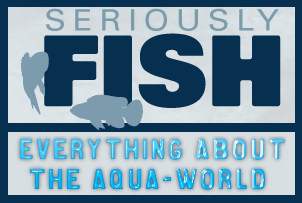Growing and Propagating Reef Corals
Reef Corals
Topographically, coral reefs are complex. The reef formations have varying strata and areas of stronger and lighter shade. Corals are invertebrates. They do not have a spine or any internal bones. Coral reefs are mainly composed of tiny animals called polyps. Millions of polyps working together form the limestone skeleton that forms the beautiful coral reefs. Successful growing and propagating of coral reefs require 3 important elements: appropriate food, light and water flow. Good water quality is essential too.
Lighting is probably the most important factor in the growing and propagating coral reefs. Most popular reef aquariums contain corals that are photosynthetic and depend on proper illumination for their growth and sustenance. Most of the symbiotic corals derive their nutrition from the products of photosynthesis. Thus, lighting is an important decision you need to take before you begin your coral reef adventure. Identify the corals that you intend to grow. Once you know what kinds of corals and other species you intend to maintain choose the lighting that is most suited to it.
Your illumination is only as good as your water quality. No matter how well illuminated the water is, if there are yellowing agents, dirt and other wastes collecting in your water, the light will not be able to penetrate the water. Protein skimming, use of effective filtration methods, partial water changes done regularly, and ozone are essential in ensuring excellent water quality. The water quality has to be maintained throughout and consistently. If you are going away on a vacation, enough precautionary measures should be taken to keep stable water quality. Sudden change in water quality, even if it is for improving the quality of water, will send these delicate invertebrates into mild shock, and may cause discoloration of the corals.
Growing and propagating coral reefs require a proper understanding of their feeding and nutritional needs. Inadequate feeding and nutrition often leads to the sudden and mysterious death of corals that had been thriving for months and the lack of the proper nutrition is the most common mistake made while keeping corals. Most corals need to be fed weekly, if not on a daily basis. Two of the most important factors regarding food are their perishability and their size. All food provided to reefs should be fresh. As food becomes stale the best nutrients slip away fast. All frozen foods and opened packages of food should be discarded after 5-6 months. It is best to store food in airtight containers in the fridge.
Prey size is another matter of great importance when it comes to growing and propagating coral reefs. Corals that feed on particles have a very strict range of acceptable pray size. In most of the cases, the polyp size will give a fairly good indication of the size of the prey. Large fleshy polyps can digest large zooplankton, or even chunks of minced meat. Tiny polyps sometimes do not respond to bigger particles of food. Liquid and bottled coral feed can be very useful, provided sufficient precautions have been taken while using and preserving them.
Water flow is also quite an important element when it comes to growing and propagating coral reefs. Most corals require a strong turbulent motion. A linear flow can be quite dangerous to such coral reefs. It is necessary to change and deflect the path of water movement. Fan corals are an exception here. They are adapted to live well in the strong currents caused by a laminar flow of water.
Growing and propagating coral reefs can be very rewarding once you see the corals beginning to prosper and give out branches. The reef aquarist's task is not an easy one as reefs are a bit more difficult to culture and grow than fish. But, diligence and a little care will definitely pay rich dividends.

Nano Reef with corals, live rock etc.
Didn't find the info you were looking for? Register for free and ask your question to our Site's Staff!
Our knowledgeable staff usually responds to any question within 24 hours











0 comments :
Post a Comment